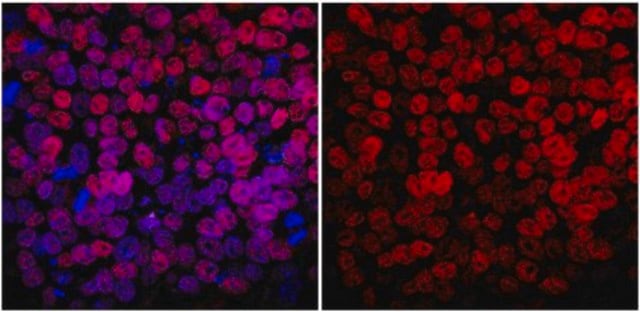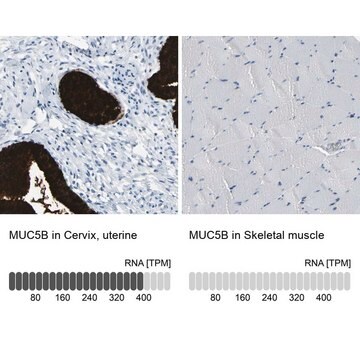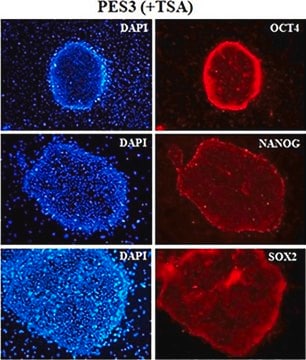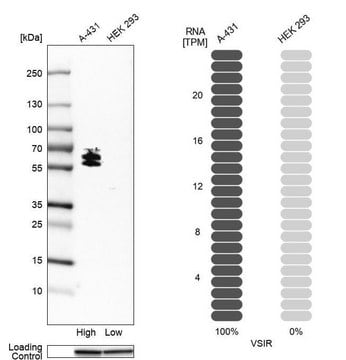FCMAB116P
Milli-Mark Anti-SSEA-4-PE Antibody, clone MC-813-70
clone MC-813-70, Milli-Mark®, from mouse
About This Item
Productos recomendados
biological source
mouse
Quality Level
conjugate
PE
antibody form
purified antibody
antibody product type
primary antibodies
clone
MC-813-70, monoclonal
species reactivity
human
manufacturer/tradename
Milli-Mark®
technique(s)
flow cytometry: suitable
immunocytochemistry: suitable
isotype
IgG3κ
shipped in
wet ice
target post-translational modification
unmodified
Gene Information
human ... FUT4(2526)
General description
Specificity
No immunoreactivity is evident with undifferentiated murine EC, ES and EG cells. Expression of SSEA-4 is down regulated following differentiation of human EC cells. In ctontrast, the differentiation of murine EC and ES cells may be accompanied by an increase in SSEA-4 expression.
Immunogen
Application
Pluripotent human ES cells exhibit strong immunoreactivity to this antibody.
Immunocytochemical staining of fixed H9 human ES cells incubated for 2 hours at 2-8oC with 1:50 dilution of anti-SSEA-4, clone MC-813-70, PE conjugated (Cat. No. FCMAB116P) monoclonal antibody.
Pluripotent human ES cells exhibit strong immunoreactivity to this antibody.
Stem Cell Research
Pluripotent & Early Differentiation
Physical form
Storage and Stability
Analysis Note
Pluripotent human embryonic stem (ES) cells
Legal Information
Disclaimer
¿No encuentra el producto adecuado?
Pruebe nuestro Herramienta de selección de productos.
Storage Class
10 - Combustible liquids
wgk_germany
WGK 2
flash_point_f
Not applicable
flash_point_c
Not applicable
Certificados de análisis (COA)
Busque Certificados de análisis (COA) introduciendo el número de lote del producto. Los números de lote se encuentran en la etiqueta del producto después de las palabras «Lot» o «Batch»
¿Ya tiene este producto?
Encuentre la documentación para los productos que ha comprado recientemente en la Biblioteca de documentos.
Nuestro equipo de científicos tiene experiencia en todas las áreas de investigación: Ciencias de la vida, Ciencia de los materiales, Síntesis química, Cromatografía, Analítica y muchas otras.
Póngase en contacto con el Servicio técnico








